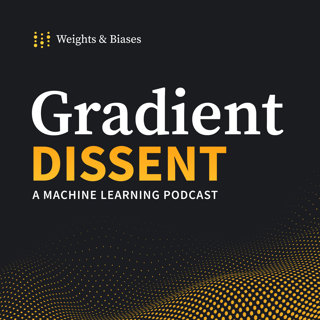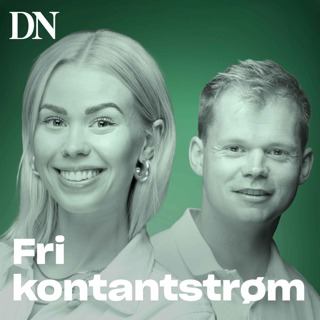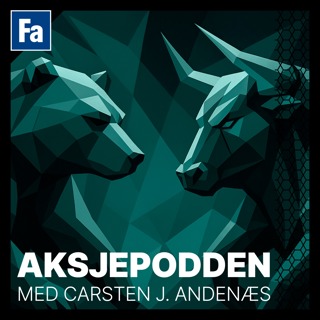
Dominik Moritz — Building Intuitive Data Visualization Tools
Dominik shares the story and principles behind Vega and Vega-Lite, and explains how visualization and machine learning help each other. --- Dominik is a co-author of Vega-Lite, a high-level visualization grammar for building interactive plots. He's also a professor at the Human-Computer Interaction Institute Institute at Carnegie Mellon University and an ML researcher at Apple. Connect with Dominik Twitter: https://twitter.com/domoritz GitHub: https://github.com/domoritz Personal website: https://www.domoritz.de/ --- 0:00 Sneak peek, intro 1:15 What is Vega-Lite? 5:39 The grammar of graphics 9:00 Using visualizations creatively 11:36 Vega vs Vega-Lite 16:03 ggplot2 and machine learning 18:39 Voyager and the challenges of scale 24:54 Model explainability and visualizations 31:24 Underrated topics: constraints and visualization theory 34:38 The challenge of metrics in deployment 36:54 In between aggregate statistics and individual examples Links Discussed Vega-Lite: https://vega.github.io/vega-lite/ Data analysis and statistics: an expository overview (Tukey and Wilk, 1966): https://dl.acm.org/doi/10.1145/1464291.1464366 Slope chart / slope graph: https://vega.github.io/vega-lite/examples/line_slope.html Voyager: https://github.com/vega/voyager Draco: https://github.com/uwdata/draco Check out the transcription and discover more awesome ML projects: http://wandb.me/gd-domink-moritz --- Get our podcast on these platforms: Apple Podcasts: http://wandb.me/apple-podcasts Spotify: http://wandb.me/spotify Google: http://wandb.me/google-podcasts YouTube: http://wandb.me/youtube Soundcloud: http://wandb.me/soundcloud --- Join our community of ML practitioners where we host AMA's, share interesting projects and meet other people working in Deep Learning: http://wandb.me/slack Our gallery features curated machine learning reports by researchers exploring deep learning techniques, Kagglers showcasing winning models, and industry leaders sharing best practices: https://wandb.ai/gallery
25 Mar 202139min

Cade Metz — The Stories Behind the Rise of AI
How Cade got access to the stories behind some of the biggest advancements in AI, and the dynamic playing out between leaders at companies like Google, Microsoft, and Facebook. Cade Metz is a New York Times reporter covering artificial intelligence, driverless cars, robotics, virtual reality, and other emerging areas. Previously, he was a senior staff writer with Wired magazine and the U.S. editor of The Register, one of Britain’s leading science and technology news sites. His first book, "Genius Makers", tells the stories of the pioneers behind AI. Get the book: http://bit.ly/GeniusMakers Follow Cade on Twitter: https://twitter.com/CadeMetz/ And on Linkedin: https://www.linkedin.com/in/cademetz/ Topics discussed: 0:00 sneak peek, intro 3:25 audience and charachters 7:18 *spoiler alert* AGI 11:01 book ends, but story goes on 17:31 overinflated claims in AI 23:12 Deep Mind, OpenAI, building AGI 29:02 neuroscience and psychology, outsiders 34:35 Early adopters of ML 38:34 WojNet, where is credit due? 42:45 press covering AI 46:38 Aligning technology and need Read the transcript and discover awesome ML projects: http://wandb.me/cade-metz Get our podcast on these platforms: Apple Podcasts: http://wandb.me/apple-podcasts Spotify: http://wandb.me/spotify Google: http://wandb.me/google-podcasts YouTube: http://wandb.me/youtube Soundcloud: http://wandb.me/soundcloud Tune in to our bi-weekly virtual salon and listen to industry leaders and researchers in machine learning share their research: http://wandb.me/salon Join our community of ML practitioners where we host AMA's, share interesting projects and meet other people working in Deep Learning: http://wandb.me/slack Our gallery features curated machine learning reports by researchers exploring deep learning techniques, Kagglers showcasing winning models, and industry leaders sharing best practices: https://wandb.ai/gallery
18 Mar 202149min

Dave Selinger — AI and the Next Generation of Security Systems
Learn why traditional home security systems tend to fail and how Dave’s love of tinkering and deep learning are helping him and the team at Deep Sentinel avoid those same pitfalls. He also discusses the importance of combatting racial bias by designing race-agnostic systems and what their approach is to solving that problem. Dave Selinger is the co-founder and CEO of Deep Sentinel, an intelligent crime prediction and prevention system that stops crime before it happens using deep learning vision techniques. Prior to founding Deep Sentinel, Dave co-founded RichRelevance, an AI recommendation company. https://www.deepsentinel.com/ https://www.meetup.com/East-Bay-Tri-Valley-Machine-Learning-Meetup/ https://twitter.com/daveselinger Topics covered: 0:00 Sneak peek, smart vs dumb cameras, intro 0:59 What is Deep Sentinel, how does it work? 6:00 Hardware, edge devices 10:40 OpenCV Fork, tinkering 16:18 ML Meetup, Climbing the AI research ladder 20:36 Challenge of Safety critical applications 27:03 New models, re-training, exhibitionists and voyeurs 31:17 How do you prove your cameras are better? 34:24 Angel investing in AI companies 38:00 Social responsibility with data 43:33 Combatting bias with data systems 52:22 Biggest bottlenecks production Get our podcast on these platforms: Apple Podcasts: http://wandb.me/apple-podcasts Spotify: http://wandb.me/spotify Google: http://wandb.me/google-podcasts YouTube: http://wandb.me/youtube Soundcloud: http://wandb.me/soundcloud Read the transcript and discover more awesome machine learning material here: http://wandb.me/Dave-selinger-podcast Tune in to our bi-weekly virtual salon and listen to industry leaders and researchers in machine learning share their research: http://wandb.me/salon Join our community of ML practitioners where we host AMA's, share interesting projects and meet other people working in Deep Learning: http://wandb.me/slack Our gallery features curated machine learning reports by researchers exploring deep learning techniques, Kagglers showcasing winning models, and industry leaders sharing best practices: https://wandb.ai/gallery
11 Mar 202156min

Tim & Heinrich — Democraticizing Reinforcement Learning Research
Since reinforcement learning requires hefty compute resources, it can be tough to keep up without a serious budget of your own. Find out how the team at Facebook AI Research (FAIR) is looking to increase access and level the playing field with the help of NetHack, an archaic rogue-like video game from the late 80s. Links discussed: The NetHack Learning Environment: https://ai.facebook.com/blog/nethack-learning-environment-to-advance-deep-reinforcement-learning/ Reinforcement learning, intrinsic motivation: https://arxiv.org/abs/2002.12292 Knowledge transfer: https://arxiv.org/abs/1910.08210 Tim Rocktäschel is a Research Scientist at Facebook AI Research (FAIR) London and a Lecturer in the Department of Computer Science at University College London (UCL). At UCL, he is a member of the UCL Centre for Artificial Intelligence and the UCL Natural Language Processing group. Prior to that, he was a Postdoctoral Researcher in the Whiteson Research Lab, a Stipendiary Lecturer in Computer Science at Hertford College, and a Junior Research Fellow in Computer Science at Jesus College, at the University of Oxford. https://twitter.com/_rockt Heinrich Kuttler is an AI and machine learning researcher at Facebook AI Research (FAIR) and before that was a research engineer and team lead at DeepMind. https://twitter.com/HeinrichKuttler https://www.linkedin.com/in/heinrich-kuttler/ Topics covered: 0:00 a lack of reproducibility in RL 1:05 What is NetHack and how did the idea come to be? 5:46 RL in Go vs NetHack 11:04 performance of vanilla agents, what do you optimize for 18:36 transferring domain knowledge, source diving 22:27 human vs machines intrinsic learning 28:19 ICLR paper - exploration and RL strategies 35:48 the future of reinforcement learning 43:18 going from supervised to reinforcement learning 45:07 reproducibility in RL 50:05 most underrated aspect of ML, biggest challenges? Get our podcast on these other platforms: Apple Podcasts: http://wandb.me/apple-podcasts Spotify: http://wandb.me/spotify Google: http://wandb.me/google-podcasts YouTube: http://wandb.me/youtube Soundcloud: http://wandb.me/soundcloud Tune in to our bi-weekly virtual salon and listen to industry leaders and researchers in machine learning share their research: http://wandb.me/salon Join our community of ML practitioners where we host AMA's, share interesting projects and meet other people working in Deep Learning: http://wandb.me/slack Our gallery features curated machine learning reports by researchers exploring deep learning techniques, Kagglers showcasing winning models, and industry leaders sharing best practices: https://wandb.ai/gallery
4 Mar 202154min

Daphne Koller — Digital Biology and the Next Epoch of Science
From teaching at Stanford to co-founding Coursera, insitro, and Engageli, Daphne Koller reflects on the importance of education, giving back, and cross-functional research. Daphne Koller is the founder and CEO of insitro, a company using machine learning to rethink drug discovery and development. She is a MacArthur Fellowship recipient, member of the National Academy of Engineering, member of the American Academy of Arts and Science, and has been a Professor in the Department of Computer Science at Stanford University. In 2012, Daphne co-founded Coursera, one of the world's largest online education platforms. She is also a co-founder of Engageli, a digital platform designed to optimize student success. https://www.insitro.com/ https://www.insitro.com/jobs https://www.engageli.com/ https://www.coursera.org/ Follow Daphne on Twitter: https://twitter.com/DaphneKoller https://www.linkedin.com/in/daphne-koller-4053a820/ Topics covered: 0:00 Giving back and intro 2:10 insitro's mission statement and Eroom's Law 3:21 The drug discovery process and how ML helps 10:05 Protein folding 15:48 From 2004 to now, what's changed? 22:09 On the availability of biology and vision datasets 26:17 Cross-functional collaboration at insitro 28:18 On teaching and founding Coursera 31:56 The origins of Engageli 36:38 Probabilistic graphic models 39:33 Most underrated topic in ML 43:43 Biggest day-to-day challenges Get our podcast on these other platforms: Apple Podcasts: http://wandb.me/apple-podcasts Spotify: http://wandb.me/spotify Google: http://wandb.me/google-podcasts YouTube: http://wandb.me/youtube Soundcloud: http://wandb.me/soundcloud Tune in to our bi-weekly virtual salon and listen to industry leaders and researchers in machine learning share their research: http://wandb.me/salon Join our community of ML practitioners where we host AMA's, share interesting projects and meet other people working in Deep Learning: http://wandb.me/slack Our gallery features curated machine learning reports by researchers exploring deep learning techniques, Kagglers showcasing winning models, and industry leaders sharing best practices: https://wandb.ai/gallery
18 Feb 202146min

Piero Molino — The Secret Behind Building Successful Open Source Projects
Piero shares the story of how Ludwig was created, as well as the ins and outs of how Ludwig works and the future of machine learning with no code. Piero is a Staff Research Scientist in the Hazy Research group at Stanford University. He is a former founding member of Uber AI, where he created Ludwig, worked on applied projects (COTA, Graph Learning for Uber Eats, Uber’s Dialogue System), and published research on NLP, Dialogue, Visualization, Graph Learning, Reinforcement Learning, and Computer Vision. Topics covered: 0:00 Sneak peek and intro 1:24 What is Ludwig, at a high level? 4:42 What is Ludwig doing under the hood? 7:11 No-code machine learning and data types 14:15 How Ludwig started 17:33 Model performance and underlying architecture 21:52 On Python in ML 24:44 Defaults and W&B integration 28:26 Perspective on NLP after 10 years in the field 31:49 Most underrated aspect of ML 33:30 Hardest part of deploying ML models in the real world Learn more about Ludwig: https://ludwig-ai.github.io/ludwig-docs/ Piero's Twitter: https://twitter.com/w4nderlus7 Follow Piero on Linkedin: https://www.linkedin.com/in/pieromolino/?locale=en_US Get our podcast on these other platforms: Apple Podcasts: http://wandb.me/apple-podcasts Spotify: http://wandb.me/spotify Google: http://wandb.me/google-podcasts YouTube: http://wandb.me/youtube Soundcloud: http://wandb.me/soundcloud Tune in to our bi-weekly virtual salon and listen to industry leaders and researchers in machine learning share their research: http://wandb.me/salon Join our community of ML practitioners where we host AMA's, share interesting projects and meet other people working in Deep Learning: http://wandb.me/slack Our gallery features curated machine learning reports by researchers exploring deep learning techniques, Kagglers showcasing winning models, and industry leaders sharing best practices: https://wandb.ai/gallery
11 Feb 202136min

Rosanne Liu — Conducting Fundamental ML Research as a Nonprofit
How Rosanne is working to democratize AI research and improve diversity and fairness in the field through starting a non-profit after being a founding member of Uber AI Labs, doing lots of amazing research, and publishing papers at top conferences. Rosanne is a machine learning researcher, and co-founder of ML Collective, a nonprofit organization for open collaboration and mentorship. Before that, she was a founding member of Uber AI. She has published research at NeurIPS, ICLR, ICML, Science, and other top venues. While at school she used neural networks to help discover novel materials and to optimize fuel efficiency in hybrid vehicles. ML Collective: http://mlcollective.org/ Controlling Text Generation with Plug and Play Language Models: https://eng.uber.com/pplm/ LCA: Loss Change Allocation for Neural Network Training: https://eng.uber.com/research/lca-loss-change-allocation-for-neural-network-training/ Topics covered 0:00 Sneak peek, Intro 1:53 The origin of ML Collective 5:31 Why a non-profit and who is MLC for? 14:30 LCA, Loss Change Allocation 18:20 Running an org, research vs admin work 20:10 Advice for people trying to get published 24:15 on reading papers and Intrinsic Dimension paper 36:25 NeurIPS - Open Collaboration 40:20 What is your reward function? 44:44 Underrated aspect of ML 47:22 How to get involved with MLC Get our podcast on these other platforms: Apple Podcasts: http://wandb.me/apple-podcasts Spotify: http://wandb.me/spotify Google: http://wandb.me/google-podcasts YouTube: http://wandb.me/youtube Tune in to our bi-weekly virtual salon and listen to industry leaders and researchers in machine learning share their research: http://wandb.me/salon Join our community of ML practitioners where we host AMA's, share interesting projects and meet other people working in Deep Learning: http://wandb.me/slack Our gallery features curated machine learning reports by researchers exploring deep learning techniques, Kagglers showcasing winning models, and industry leaders sharing best practices: https://wandb.ai/gallery
5 Feb 202149min

Sean Gourley — NLP, National Defense, and Establishing Ground Truth
In this episode of Gradient Dissent, Primer CEO Sean Gourley and Lukas Biewald sit down to talk about NLP, working with vast amounts of information, and how crucially it relates to national defense. They also chat about their experience of being second-time founders coming from a data science background and how it affects the way they run their companies. We hope you enjoy this episode! Sean Gourley is the founder and CEO Primer, a natural language processing startup in San Francisco. Previously, he was CTO of Quid an augmented intelligence company that he cofounded back in 2009. And prior to that, he worked on self-repairing nano circuits at NASA Ames. Sean has a PhD in physics from Oxford, where his research as a road scholar focused on graph theory, complex systems, and the mathematical patterns underlying modern war. Follow Sean on Twitter: https://primer.ai/ https://twitter.com/sgourley Topics Covered: 0:00 Sneak peek, intro 1:42 Primer's mission and purpose 4:29 The Diamond Age – How do we train machines to observe the world and help us understand it 7:44 a self-writing Wikipedia 9:30 second-time founder 11:26 being a founder as a data scientist 15:44 commercializing algorithms 17:54 Is GPT-3 worth the hype? The mind-blowing scale of transformers 23:00 AI Safety, military/defense 29:20 disinformation, does ML play a role? 34:55 Establishing ground truth and informational provenance 39:10 COVID misinformation, Masks, division 44:07 most underrated aspect of ML 45:09 biggest bottlenecks in ML? Visit our podcasts homepage for transcripts and more episodes! www.wandb.com/podcast Get our podcast on these other platforms: YouTube: http://wandb.me/youtube Soundcloud: http://wandb.me/soundcloud Apple Podcasts: http://wandb.me/apple-podcasts Spotify: http://wandb.me/spotify Google: http://wandb.me/google-podcasts Join our bi-weekly virtual salon and listen to industry leaders and researchers in machine learning share their work: http://wandb.me/salon Join our community of ML practitioners where we host AMA's, share interesting projects and meet other people working in Deep Learning: http://wandb.me/slack Our gallery features curated machine learning reports by researchers exploring deep learning techniques, Kagglers showcasing winning models, and industry leaders sharing best practices. https://wandb.ai/gallery
28 Jan 202147min





















